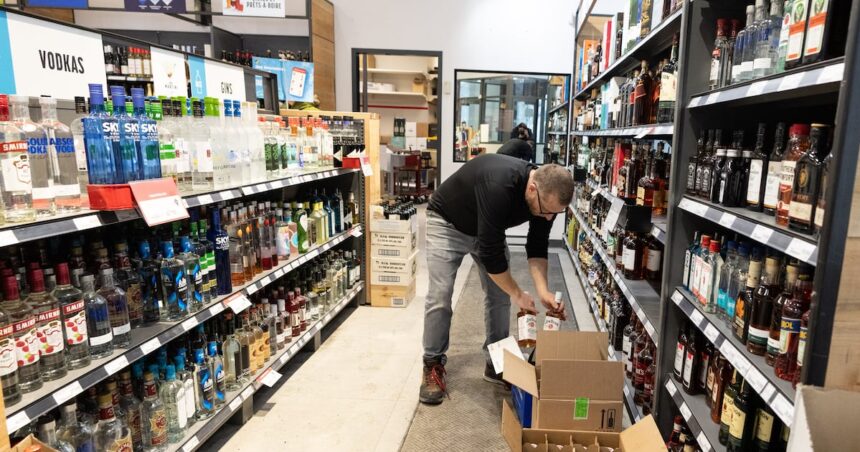The recent decision by the Société des alcools du Québec (SAQ) to close 24 branches across the province has sparked significant pushback from municipal leaders in Montreal and surrounding areas. As someone who’s walked past these familiar green storefronts for decades, I find this development particularly striking for our communities.
Last week, the provincial liquor board announced its restructuring plan, which will see these branches shuttered permanently by February 2025. The announcement has left many local mayors frustrated and concerned about the impact on their communities.
“This decision was made without any consultation with the municipalities,” said Martin Damphousse, president of the Union des municipalités du Québec (UMQ) and mayor of Varennes, in a statement issued Tuesday. The UMQ represents over 85% of Quebec’s population through its member municipalities.
What’s particularly troubling is how these closures might affect our neighborhood dynamics. I’ve often observed how these stores serve as more than just retail locations – they’re gathering spots where neighbors bump into each other and catch up on community news.
According to the SAQ, the decision stems from changing consumer behaviors, with more people shopping online and visiting SAQ Express locations. Catherine Dagenais, president and CEO of the SAQ, explained that the affected branches represent less than 6% of the network’s total sales volume.
“The pandemic accelerated the shift to online shopping, and we’ve seen a 40% increase in SAQ.com sales since 2019,” Dagenais stated in their announcement.
However, mayors from affected communities counter that these closures will disproportionately impact seniors and those with limited mobility. Having covered neighborhood changes for years, I’ve noticed how the loss of walkable retail can transform a community’s character and convenience.
Montreal Mayor Valérie Plante has called on the SAQ to reconsider. “The SAQ is a crown corporation with a mandate to serve all Quebecers,” she said during a press conference yesterday. “We need to ensure equitable access to services across all neighborhoods.”
In response to mounting criticism, the SAQ issued a statement Tuesday saying they’re “open to dialogue” with affected municipalities. The liquor board claims they will work with local authorities to minimize impacts on communities and ensure reasonable access to their products.
The SAQ has promised that no jobs will be lost due to these closures, with all affected employees being relocated to other branches. While this addresses employment concerns, it doesn’t solve the accessibility issues for residents.
Pierre Fitzgibbon, Quebec’s Economy Minister, defended the decision, noting that “crown corporations must adapt to changing market realities while maintaining their service obligations.”
The timing of these closures feels particularly challenging as our neighborhoods continue recovering from pandemic-related retail losses. Just last month, while working on a story about local business resilience, I spoke with several small business owners who mentioned how anchor retailers like the SAQ help drive foot traffic to surrounding shops.
The SAQ has indicated they’ll enhance their delivery services and potentially expand hours at remaining locations to compensate for the closures. However, many community advocates argue these measures can’t replace the convenience and social aspect of neighborhood stores.
Quebec’s consumer protection association has also weighed in, raising concerns about potential price increases if market competition decreases with fewer physical locations.
This situation reflects a broader tension we’re seeing across Montreal – balancing modernization with preservation of neighborhood character and accessibility. As our shopping habits evolve, institutions like the SAQ face difficult decisions about their physical presence.
The SAQ operates nearly 410 outlets across Quebec, with approximately 90 in the greater Montreal region. The 24 planned closures represent about 6% of their total network.
For now, the liquor board says they’re reviewing feedback from municipalities but haven’t indicated any plans to reverse their decision. Local mayors plan to continue advocating for their communities, with several planning to meet with SAQ officials in the coming weeks.
As this story develops, I’ll be watching closely how these negotiations unfold and what compromises might emerge to better serve our communities’ needs.







